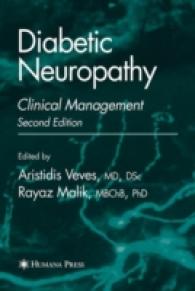- ホーム
- > 洋書
- > 英文書
- > Study Guides
Full Description
It also adds to our knowledge of how Chinese undergraduates and their instructors view plagiarism and cope with plagiarism in discipline-based courses, which provides robust evidence for the academic debate about whether culture has effects on students' plagiarism in academic writing.





